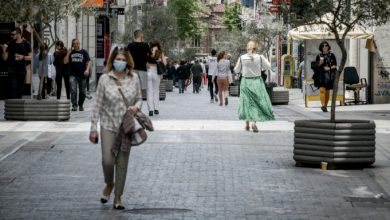Forest Fire in Rhodes: Strong Wind Continues
Greece continues to fight against the severe forest fires. Despite a massive deployment of fire-fighting aircraft and helicopters, a major fire on Rhodes is still out of control.

Other hotel complexes are also threatened.
Although more than 100 firefighting planes and helicopters have been in action for days, the fires continue to rage in numerous regions of Greece. According to civil protection, the risk of fire is extremely high.
The situation is still dramatic in the southeast of the holiday island of Rhodes. Strong winds blow there and fan the flames again and again. Six villages north and west of the ancient site of Lindos are under threat. Firefighting planes and helicopters were deployed again at first light to get the flames under control. “The extinguishing work is very difficult because of the turning winds,” said a spokesman for the fire brigade on state radio.
Several houses on the island’s mountains burned down on Monday. Other hotel complexes are also threatened. The damage on Rhodes is already great. Around ten percent of the island’s hotels were damaged over the weekend, according to Greek Prime Minister Kyriakos Mitsotakis. Most of the damaged tourist facilities are located south of the Lindos region.
Criticism of rescue operation
British vacationers criticized the organization of the evacuations. “Our hotel had room for 1,200 people, but there was only one bus waiting,” said Ian Murison, a London businessman. According to the British government, there are between 7,000 and 10,000 nationals on the island. Some tourists complained that the tour companies did not provide them with any information or assistance.
“We all grabbed our bags and started walking. It took us about two miles to get out from under the ash cloud,” Murison said of his family’s escape from the hotel. He finally reached a beach with his wife and son. There they would have waited – because of a power failure in the dark – together with thousands of others to be evacuated by bus or boat.
Chaotic scenes would have played out on the beach. People crowded to get into one of the small boats that were supposed to take the holidaymakers to safety. “It didn’t matter if you had kids. Adults were fighting to get on board next,” he said.
Employees from the Greek Foreign Ministry and several embassies tried to help tourists who had lost their travel documents at the international airport. Several tour operators and airlines such as TUI and Easyjet sent planes to Rhodes to fly out evacuated tourists.
Many animals perished
According to initial estimates by experts, around 150 square kilometers of forest and agricultural land were destroyed in the forest fires. In addition, numerous deer, turtles and other wild and farm animals were burned, including a rare fallow deer species, the Dama-Dama.
Animals that survived now seek food and water in inhabited regions. Animal rights activists called on the people of Rhodes to leave food and drinking water in their gardens so that the animals survive.
Hope for relaxation on Thursday
Fires are also raging around the port city of Karystos on the island of Euboea in northeast Athens, threatening villages. There are also fires on the Peloponnese peninsula near the port city of Agios and on the island of Corfu. These fires have now been contained and are not threatening any inhabited areas, the fire department said. Firefighters from several EU countries are helping the Greeks. Turkey and Egypt have also sent firefighting planes and helicopters.
Extremely high temperatures are expected again in almost all parts of the country today and tomorrow. “The thermometers could show 46 and more degrees, especially on Wednesday,” said a meteorologist from the weather agency on the news channel Skai. A wind coming from Libya is expected, especially in the west of the country: It is a hot, dry fall wind – the notorious “Livas”. Meteorologists described the phenomenon as extremely dry and as hot as air from a hair dryer. A drop to around 35 degrees is expected on Thursday.
Other countries in the Mediterranean region continue to struggle with the heat and drought. There is a high risk of forest fires in France, Italy, Spain and Portugal. In Malta, the high temperatures also led to power outages, some of which lasted up to 36 hours.



